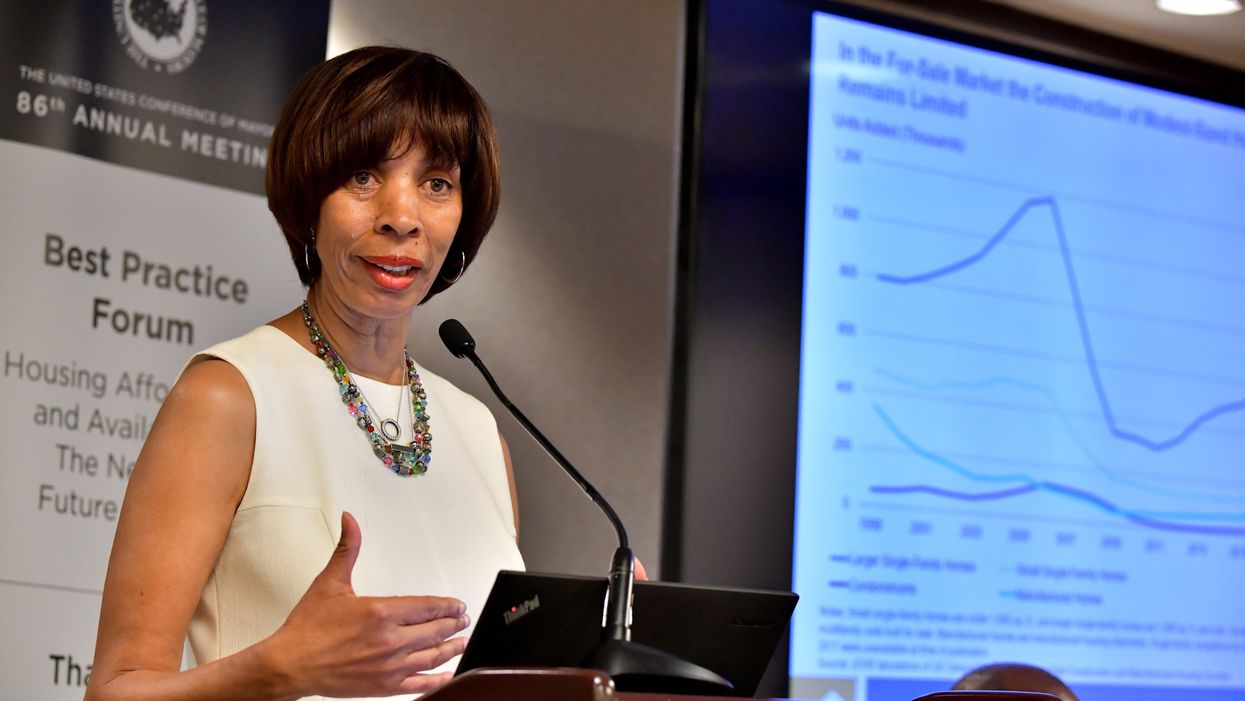Griffiths is the editor of Independent Voter News.
Baltimore is a one-party town. It hasn't had a Republican mayor since 1967. Registered Democrats vastly outnumber any other party registration, having a tenfold advantage over the GOP. It's as blue as a city can get.
The consequence is that November elections are inconsequential. The winner of the closed Democratic mayoral primary, for instance, might as well be sworn in the next day, and he or she can win with a marginal share of the total registered voting population. Voters outside the Democratic Party have no voice in the process.
A new study says that, to strengthen political competition and improve city elections, Baltimore should implement nonpartisan reform. Specifically, George Washington University political scientist Christopher Warshaw says, a "'top-two primary' is the reform most likely to improve Baltimore's mayoral elections. This reform would increase turnout and electoral competition."
The Abell Foundation published Warshaw's study just in time for Maryland's primary last week — when the Democratic nod for mayor, which is tantamount to election, was won by City Council President Brandon Scott with just 29 percent of the vote against four credible opponents
Warshaw examines three problems he identified with Baltimore elections:
- Primary elections can be won with a narrow plurality or very low threshold of the total vote. Another example: Catherine Pugh won the Democratic mayoral primary four years ago with just 37 percent.
- Due to the overwhelming advantage the Democrats have in voter registration, the primary election is the most crucial stage of the elections process and the Democratic primary decides the winner of the election.
- Only registered party members can participate in the primaries, meaning approximately 50,000 voters registered unaffiliated or outside the two major parties are denied a voice unless they affiliate with the dominant party (In other words, their right to meaningful participation is conditioned on affiliating with the Democratic Party.)
Warshaw ultimately concludes that a nonpartisan, top-two primary in which all voters and candidates, regardless of party, participate on a single primary ballot could have the most transformative effect on city elections.
Because Baltimore is a Democratic stronghold this could lead to same-party races in November. However, he says, the outcome of the race will be decided when the most voters participate and won't be decided by the party faithful.
"The shift to a top-two primary would ... lead to more competitive general elections and incentivize candidates to appeal to a broader electorate," the study concludes. "This, in turn, could improve democracy in Baltimore by leading to the election of officials that are more demographically and ideologically representative of Baltimore's electorate."
Researchers in California have determined that the nonpartisan, top-two primary has had this exact effect on the state's political landscape. California uses the top-two primary" for all state executive and legislative elections, along with non-presidential federal elections.
Warshaw further suggests that the city should analyze the impact ranked-choice voting has in New York and other major cities where it has been adopted and is used. If it works in the nation's biggest city, he writes, then Baltimore should consider adding it to the nonpartisan, top-two primary.
Warshaw recognizes, however, that there is a significant legal hurdle to adopting nonpartisan election reform. His research indicates that the city does not have the authority to change its own elections and would need state legislative approval. In other words, change can only happen if the people who control elections agree to cede that authority to voters.
Historically, this has been a tall hurdle to clear because parties don't like to give up this control.
This doesn't mean support for reforming primary elections doesn't exist in the Legislature. In his study, Warshaw cites a bill, proposed in Annapolis last year by Democratic Rep. Brooke Lierman of Baltimore City, that would have permitted the city to switch to ranked-choice voting or open primaries. Lierman eventually withdrew her own bill.
Visit IVN.us for more coverage from Independent Voter News.




















